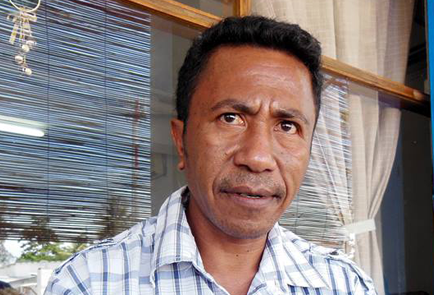
AUCKLAND (The Guardian / Time magazine / Human Rights Watch): Global criticism of Timor-Leste's draconian new media law is growing. Last week, both Time magazine and The Guardian carried stories critical of the new media law, and Human Rights Watch said East Timor’s president should refuse to sign the Media Act into law.
Human Rights Watch also called on foreign donors to "publicly express concern at the attempts by the government of East Timor to rollback media freedoms".
The law was passed by Parliament over two months ago but needs to be signed into law by President Taur Matan Ruak.
PMW reported then that La'o Hamutuk had called on Ruak to veto the law - a call which was endorsed by the Auckland-based Pacific Media Centre and Timor-Leste solidarity groups from the US, Japan, Sweden, Australia and the UK.
The new law will only allow government-registered journalists to write and publish stories; and journalists will only be registered and permitted to work if they are employed by a "recognised media outlet" and if they have done an internship of at least six months in one of these outlets.
Veteran Timor-Leste journalist Jose Belo told Crikey recently that "the tale of East Timor’s controversial proposed media law is a story of insiders versus outsiders, of the rich versus the poor. Those inside the elite classes are seeking to implement a restrictive new media law so as to limit and control the information available to Timorese outside the elite group, as well as all those outside of East Timor".
It is feared that this will lead to a clampdown on freelance journalists, bloggers, academics, civil society organisations and others.
The new law also restricts students from becoming journalists, stipulating that only "adult citizens" will be registered. There is also a clause restricting the media to promoting "peace, social stability, harmony and national solidarity” which could be used to discourage coverage of dissent.
According to Time magazine, the Media Act is a harsh law which threatens Timor-Leste's democracy.
"Several provisions would permit government interference with journalists," says the article.
The country's appeal court is now reviewing the law's constitutionality in response to a request by Ruak, The Guardian reported.
This work is licensed under a Creative Commons Attribution-NonCommercial 3.0 New Zealand Licence.




